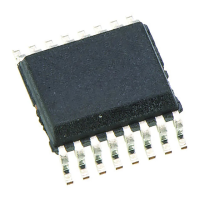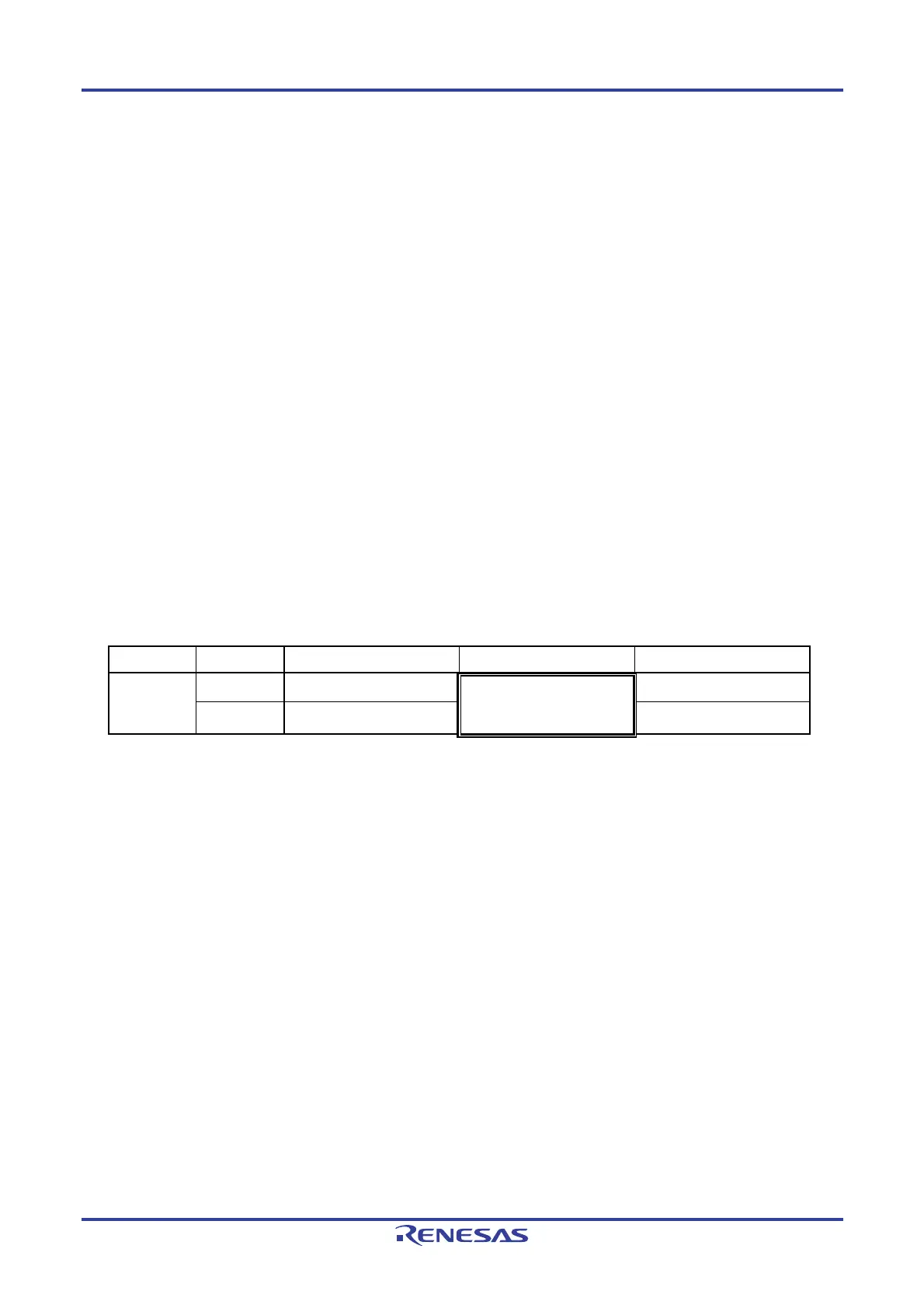RL78/G10 CHAPTER 12 SERIAL ARRAY UNIT
R01UH0384EJ0311 Rev. 3.11 365
Dec 22, 2016
12.6 Operation of UART (UART0) Communication
This is a start-stop synchronization function using two lines: serial data transmission (TXD) and serial data reception
(RXD) lines. By using these two communication lines, each data frame, which consists of a start bit, data, parity bit, and
stop bit, is transferred asynchronously (using the internal baud rate) between the microcontroller and the other
communication party. Full-duplex UART communication can be performed by using a channel dedicated to transmission
(an even-numbered channel) and a channel dedicated to reception (an odd-numbered channel).
[Data transmission/reception]
• Data length of 7 or 8 bits
• Select the MSB/LSB first
• Level setting of transmit/receive data and select of reverse (selecting whether to reverse the level)
• Parity bit appending and parity check functions
• Stop bit appending and stop bit check functions
[Interrupt function]
• Transfer end interrupt/buffer empty interrupt
• Error interrupt in case of framing error, parity error, or overrun error
[Error detection flag]
• Framing error, parity error, or overrun error
The ISC register can be used to set up the input signal on the RxD0 pin of UART0 as an external interrupt input or as a
timer input for the timer array unit. The input pulse interval measurement mode of the timer array unit can then be used to
measure the width at the baud rate of the other party in communications and make the required adjustments in response.
Unit Channel Used as CSI Used as UART
Used as Simplified I
2
C
0 0 CSI00 UART0 IIC00
1 CSI01
−
Caution When UART operation is selected, the even-numbered channel can only be used for transmission
and the odd-numbered channel can only be used for reception.
UART performs the following four types of communication operations.
• UART transmission (See 12.6.1.)
• UART reception (See 12.6.2.)

